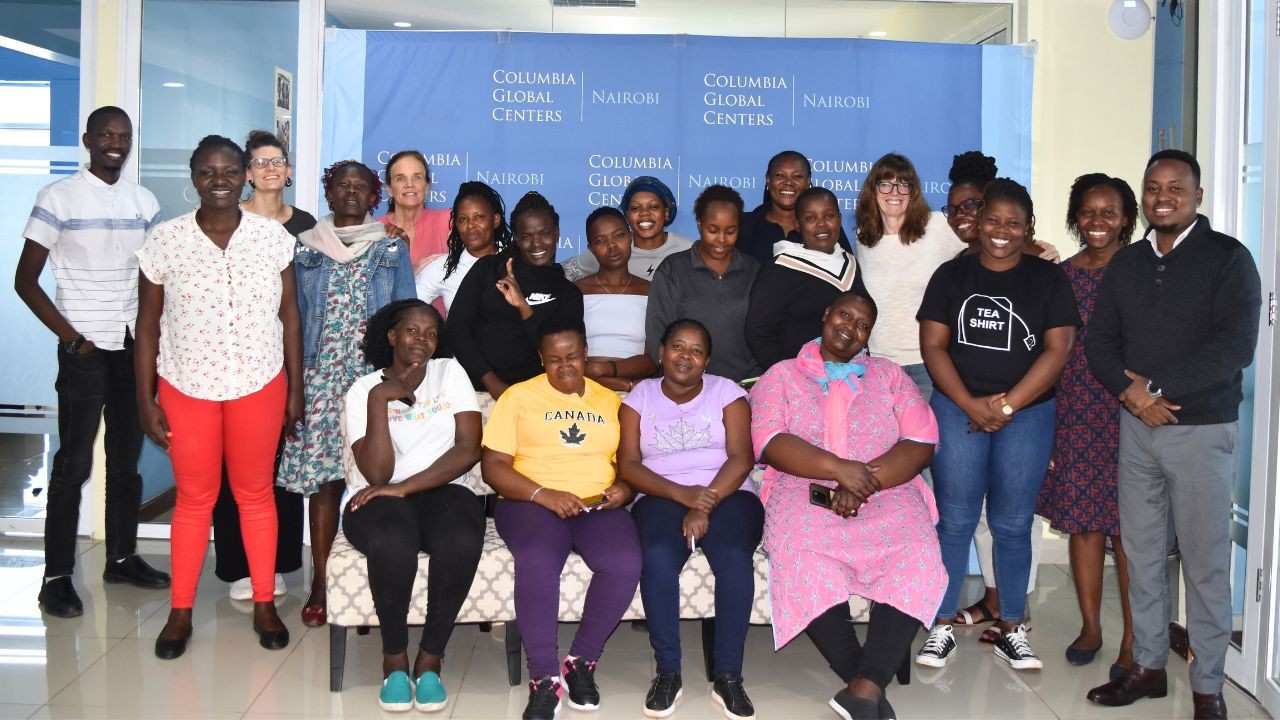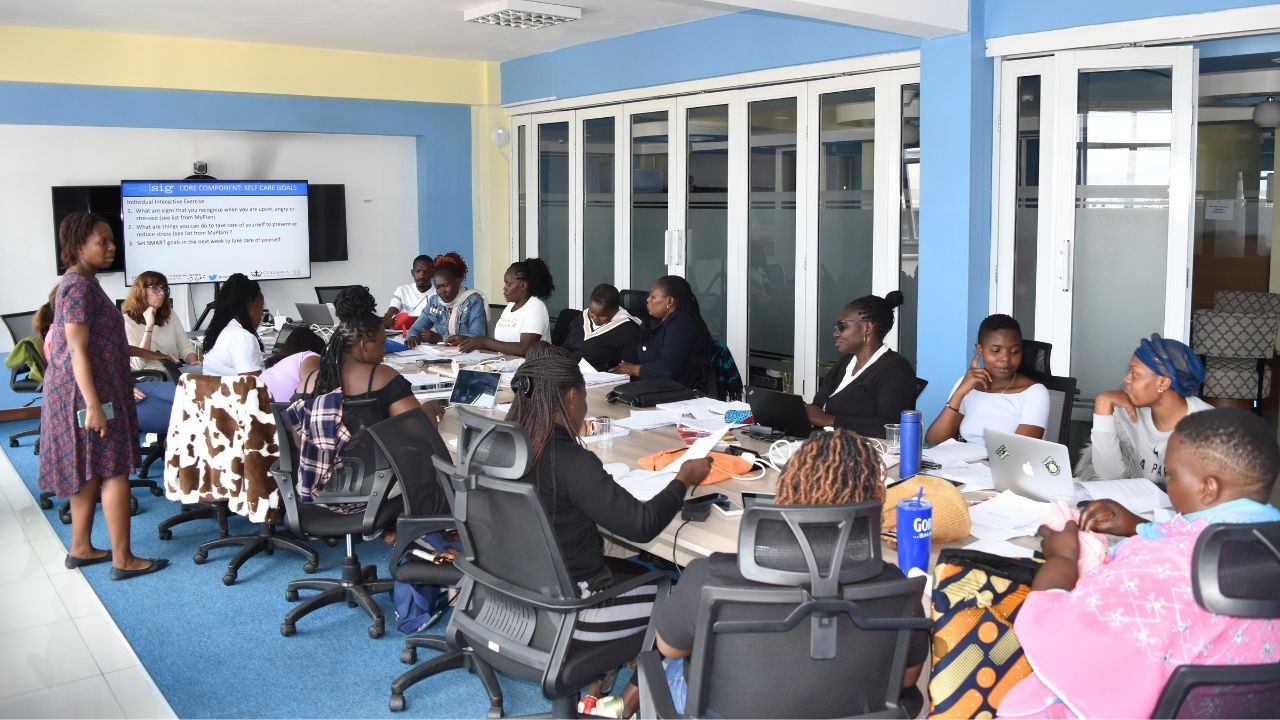The research has been running since 2021 and is currently in its last phase of implementing its key activities, including:
- Combining an IPV intervention (Wings of Hope: WINGS) with the World Health Organization (WHO) mental health response intervention (Problem Management Plus: PM+) and adapting the combined (WINGS+PM+) intervention for use in existent healthcare settings in informal settlements in Nairobi.
- Pilot testing the adapted WINGS+PM+ intervention through a randomized control trial with 260 women to assess the safety, feasibility, and acceptability of WINGS+PM+ versus PM+-only as the foundation for a low-cost IPV services package that can expand services to women experiencing IPV in informal settlements.
To achieve this, Dr. Winter is leading an 18-day training with community leaders to implement a pilot intervention. Throughout this extensive initiative, 34 dedicated community members are actively involved, out of which 10 will screen potential participants for eligibility for the intervention, 16 will serve as facilitators guiding participants through the intervention process, and 8 will be responsible for completing longitudinal assessments to test the feasibility, acceptability, safety, and preliminary efficacy of the program.

